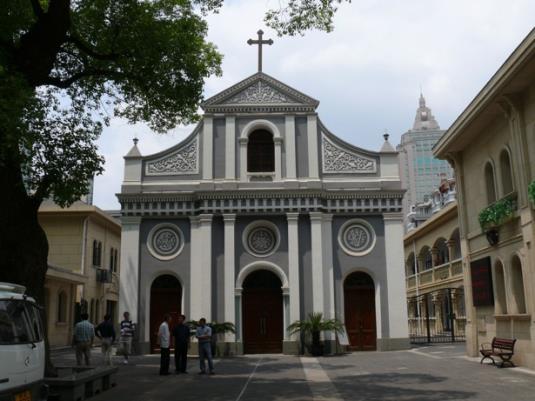
Business-friendly evangelical churches originating in the Wenzhou region of China are expanding globally, serving as a new model of missions, but may also be spreading Chinese nationalism, according to two reports. In the evangelical Hong Kong-based journal China Source (June 8, 2020), Brad Fulton looks at how Chinese Christians from Wenzhou—considered China’s Bible belt—have pioneered in a model of missions where church planting networks follow the circuit of business entrepreneurs and their overseas contacts and opportunities. Because of their isolated geography that keeps some distance from China’s religious  restriction, Wenzhou’s churches have created an infrastructure for programs and resources for churches throughout the country and beyond, as well as inspiring persecuted Christians. But the particularity of the region, with a distinct dialect difficult for outsiders to understand, and the way Wenzhou Christians tend to keep to their own “tribe” in their missions is problematic, Fulton writes. Add to that, Wenzhou’s “boss Christians,” who too easily export business style into ministry, can just as easily tarnish the reputation of Christianity in areas where they are too closely to commercial expansion, such as in China’s Belt and Road Initiative.
restriction, Wenzhou’s churches have created an infrastructure for programs and resources for churches throughout the country and beyond, as well as inspiring persecuted Christians. But the particularity of the region, with a distinct dialect difficult for outsiders to understand, and the way Wenzhou Christians tend to keep to their own “tribe” in their missions is problematic, Fulton writes. Add to that, Wenzhou’s “boss Christians,” who too easily export business style into ministry, can just as easily tarnish the reputation of Christianity in areas where they are too closely to commercial expansion, such as in China’s Belt and Road Initiative.
In the journal PentecoStudies (19:1), Nanlai Cao, who coined the term “boss Christians” in her studies of Wenzhou’s churches, turns her attention to Wenzou’s missions abroad. She finds that Wenzhou Christians “doing business in other places are eager to establish their own churches and are reluctant to cooperate with local Christians in their church-building projects. There are also large Wenzhou churches in Europe, particularly in Italy, Spain, and France…Instead of being integrated into Western or even other overseas Chinese Christian community, the ‘Wenzhou model’ of churches in Europe operates on a basis of autonomy and maintains close transnational ties to the church communities back in Wenzhou, resembling the business dealings of Wenzhou immigrant enclaves in Europe.” Rather than targeting Westerners, as is the case with most “reverse missions,” Wenzhou prioritize reaching Chinese immigrants. Second-generation members do engage in outreach, as is the case during the pandemic when they handed out desperately needed face masks while evangelizing local Italians. Chinese lay preachers even linked the pandemic in Italy to be part of Europe’s “spiritual crisis” and the increasing “lack of testimony” among Europeans. Cao concludes that Wenzhou’s Christians are spiritualizing the nationalism among other Chinese business leaders in the West as they see China as taking the “last baton in the global evangelical movement.”
(ChinaSource Quarterly, https://www.chinasource.org/resource-library/articles/the-wenzhou-model-and-missions-from-china/; PentecoStudies, https://journals.equinoxpub.com/PENT)